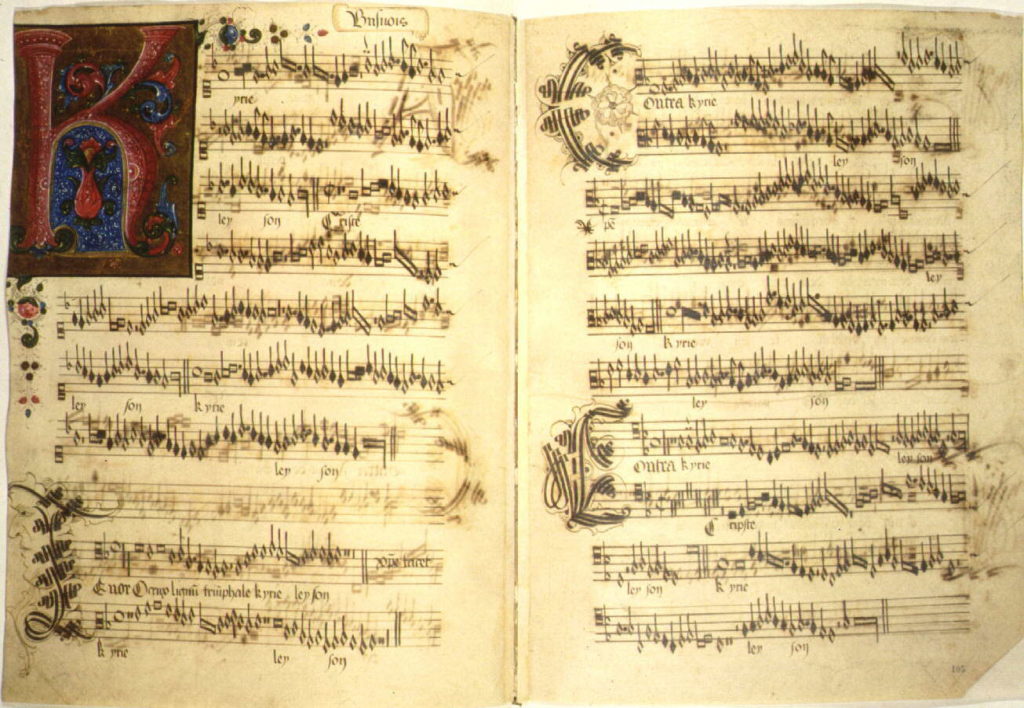
Time-Binding and The Music History Survey

Musicologist Phil Ford, co-host of the Weird Studies podcast, makes an eloquent argument for the preservation of the “Chants to Minimalism” Western Music History survey—the standard academic curriculum for musicology students, akin to the “fish, frogs, lizards, birds” evolutionary spiral taught in bio classes—in an age of exponential change and an increased emphasis on “relevance” over the remembrance of canonical works:
Perhaps paradoxically, the rate of cultural change increases in proportional measure to the increase in cultural memory. Writing and its successor media of prosthetic memory enact a contradiction: the easy preservation of cultural memory enables us to break with the past, to unbind time. At its furthest extremes, this is manifested in the familiar and dismal spectacle of fascist and communist regimes, impelled by intellectual notions permitted by the intensified time-binding of literacy, imagining utopias that will ‘wipe the slate clean’ and trying to force people to live in a world entirely divorced from the bound time of social/cultural tradition.
See, for instance, Mao Zedong’s crusade to destroy Tibetan Buddhism by the erasure of context that held the Dalai Lama’s social role in place for fourteen generations. How is the culture to find a fifteenth Dalai Lama if no child can identify the relics of a prior Dalai Lama? Ironically this speaks to larger questions of the agency of landscapes and materials, and how it isn’t just our records as we understand them that help scaffold our identity; but that we are in some sense colonial organisms inextricable from, made by, our environments — whether built or wild. As recounted in countless change-of-station stories, monarchs and other leaders, like whirlpools or sea anemones, dissolve when pulled out of the currents that support them.
That said, the current isn’t just stability but change. Both novelty and structure are required to bind time. By pushing to extremes, modernity self-undermines, imperils its own basis for existence; and those cultures that slam on the brakes and dig into conservative tradition risk self-suffocation, or being ripped asunder by the friction of collision with the moving edge of history:
Modernity is (among other things) the condition in which time-binding is threatened by its own exponential expansion, and yet where it’s not clear exactly how we are to slow its growth. Very modern people are reflexively opposed to anything that would slow down the acceleration: for them, the essence of the human is change. Reactionaries are reflexively opposed to anything that will speed up acceleration: for them, the essence of the human is continuity. Both are right! Each side, given the opportunity to realize its imagined utopia of change or continuity, would make a world no sensible person would be caught dead in.
Ultimately, therefore, a conservative-yet-innovative balance must be found in the embrace of both new information technologies and their use for preservation of historic repertoires. When on a rocket into space, a look back at the whole Earth is essential to remember where we come from:
The best argument for keeping Sederunt in the classroom is that it is one of the nearly-infinite forms of music that the human mind has contrived, and the memory of those forms — time-binding — is crucial not only to the craft of musicians but to our continued sense of what it is to be a human being.
This isn’t just future-shocked reactionary work but a necessary integrative practice that enables us to reach beyond:
To tell the story of who we are is to engage in the scholar’s highest mission. It is the gift that shamans give their tribe.
Join our newsletter for the latest in long-term thinking
Subscribe